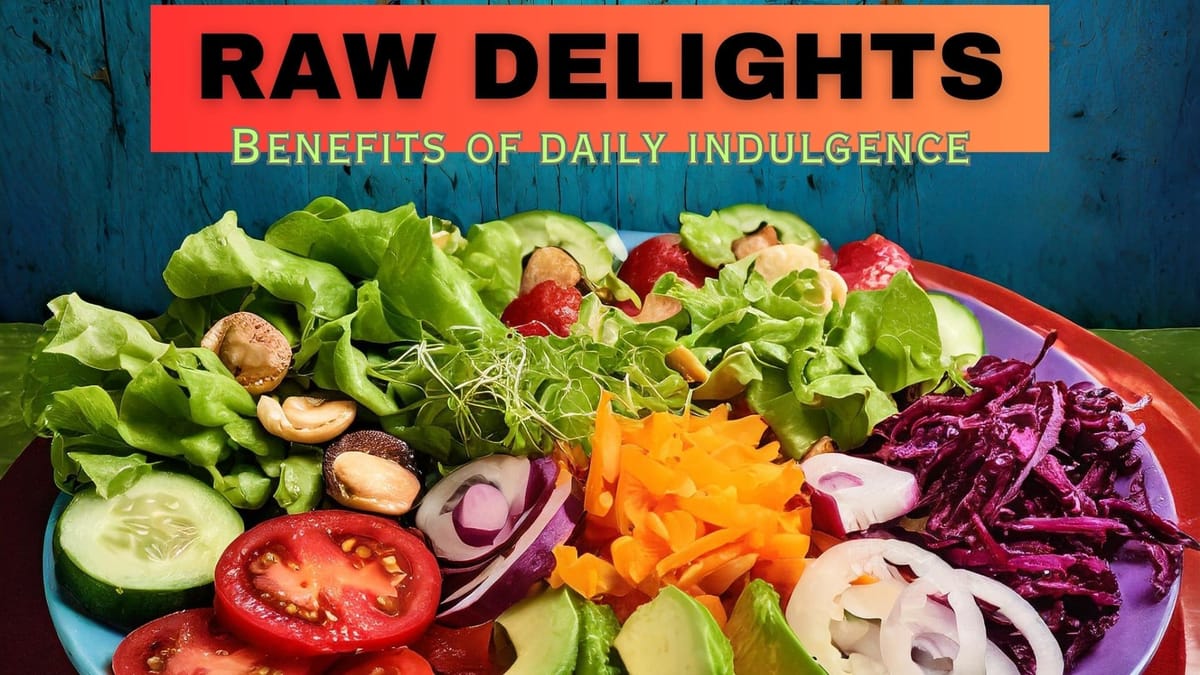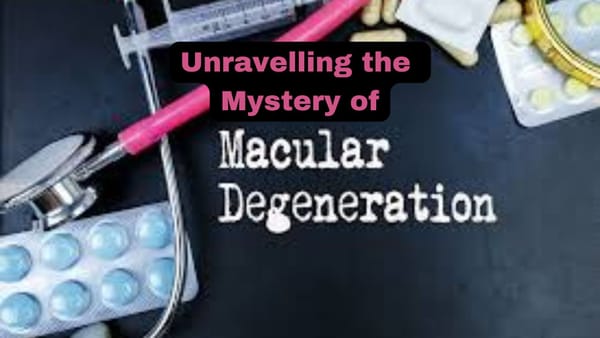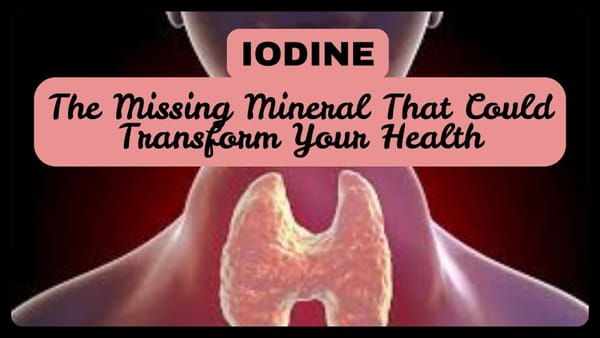How to Lower Bad Cholesterol Without Medication
Discover natural ways to reduce bad cholesterol levels without relying on medication. Learn effective strategies for a healthier lifestyle.

Welcome to our guide on how to lower bad cholesterol without relying on medications used to lower high cholesterol, called Statins. Are you concerned about your high cholesterol levels and eager to make a change? You're not alone. Millions worldwide are searching for effective ways to reduce their "bad" LDL cholesterol and improve their overall heart health without the side-affects of medication. The good news is that you may be able to achieve this goal by embracing a heart-healthy lifestyle and making simple yet powerful changes to your daily routine.
In this article, we'll take you on an exciting journey, exploring practical and science-backed strategies to help you lower your bad cholesterol naturally. From delicious dietary adjustments to invigorating exercise routines, we will provide you with the latest advice tailored to improve your well-being.
So, are you ready to take control of your cholesterol levels and reduce your risk of cardiovascular issues? Let's dive in and discover the secrets to a healthier, happier you.
- Pick heart-healthy fats
- Eat Omega-3 rich foods
- Increase fibre intake
- Limit dietary cholesterol
- Focus on a plant-based diet
- Exercise regularly
- Maintain healthy weight
- Limit alcohol
- Quit smoking
- Manage stress
Understanding the Risks of High Cholesterol
Cholesterol is a waxy substance in your blood that helps your body work properly. But when you have too much of it, it can cause health problems. High levels of low-density lipoprotein (LDL), or "bad" cholesterol, can lead to plaque buildup in your arteries, which can increase your risk of heart disease and stroke. While medication is often used to manage high cholesterol, many people successfully lower it by making healthy lifestyle changes.
One of the best ways to lower LDL cholesterol naturally is by eating nutrient-rich foods and avoiding harmful compounds.
Trans fats and saturated fats can raise your LDL cholesterol and lower your beneficial HDL cholesterol levels. Trans fats are often found in fried foods, baked goods, and processed snacks, while saturated fats are common in fatty cuts of meat, butter, cheese, and some plant-based oils like palm and coconut oil.
- Lean protein sources (e.g., chicken, fish, beans)
- Monounsaturated and polyunsaturated fats (e.g., olive oil, avocados, nuts, and seeds)
- Whole grains
- Fruits and vegetables
- Fried foods (e.g., fries, fried chicken, doughnuts)
- Baked goods (e.g., cakes, cookies, pastries)
- Processed snacks (e.g., chips, crackers)
- Fatty cuts of meat (e.g., bacon, sausages, ribs)
- Full-fat dairy products (e.g., whole milk, butter, cheese)
- Tropical oils (e.g., palm oil, coconut oil)
Regular exercise is an important part of a cholesterol-lowering lifestyle. It helps you manage your weight and directly impacts your cholesterol levels in several ways:
- Raises HDL ("Good") Cholesterol: Aerobic exercises like brisk walking, cycling, and swimming can increase your HDL cholesterol levels, which helps remove LDL cholesterol from your arteries.
- Lowers LDL ("Bad") Cholesterol: Regular aerobic exercise may help lower your LDL cholesterol levels, especially when combined with dietary changes.
- Improves Cholesterol Particle Size: Exercise can create larger, less harmful LDL particles, reducing the risk of plaque buildup in your arteries.
- Helps with Weight Loss: Exercise burns calories and builds muscle mass, which can help you lose weight and improve your cholesterol levels.
Aim for at least 150 minutes of moderate-intensity aerobic activity or 75 minutes of vigorous aerobic activity per week. Also, include strength training exercises to build lean muscle mass, which can further improve your cholesterol levels.
IMPACT OF ALCOHOL ON CHOLESTEROL LEVELS
While moderate alcohol consumption may have some heart health benefits, it's important to understand its effects on your cholesterol levels. Alcohol can affect your cholesterol levels in the following ways:
- Raises HDL ("Good") Cholesterol: Moderate alcohol intake (one drink per day for women and two drinks per day for men) may slightly raise your HDL cholesterol levels.
- Increases Triglyceride Levels: Excessive alcohol consumption can lead to high triglyceride levels, a type of fat in your blood that can contribute to plaque buildup in your arteries.
- Harms Liver Function: Chronic, heavy drinking can damage your liver, which is responsible for removing excess cholesterol from your body.
If you choose to drink alcohol, do so in moderation and consult with your healthcare provider, especially if you have existing health conditions or are taking medications.

The Role of Supplements in Cholesterol Management
While diet and lifestyle changes should be your main focus for lowering cholesterol naturally, certain supplements may provide additional support. However, always consult your healthcare provider before taking anything new.
Fish Oil Supplements for Triglyceride Reduction
Fish oil supplements, rich in omega-3 fatty acids, can help reduce triglyceride levels and modestly improve HDL ("good") cholesterol levels. Look for supplements with a significant amount of EPA (eicosapentaenoic acid) and DHA (docosahexaenoic acid).
Plant Stanols and Sterols
Plant stanols and sterols are natural compounds found in fruits, vegetables, nuts, and grains that can help lower LDL ("bad") cholesterol levels by blocking cholesterol absorption in your digestive tract. Many foods are now fortified with plant stanols and sterols, making it easier to include them in your diet.
Soluble Fibre Supplements
Soluble fibre supplements, such as psyllium husk or glucomannan, can help reduce LDL cholesterol levels by binding to cholesterol in your digestive system and promoting its excretion.
Regular cholesterol checks are essential, as high cholesterol often has no symptoms. Most healthcare providers recommend adults from age 20 get a lipoprotein panel test every 4 to 6 years. This test measures your total cholesterol, LDL ("bad") cholesterol, HDL ("good") cholesterol, and triglycerides.
Adopting a heart-healthy lifestyle is crucial for managing cholesterol levels and reducing the risk of cardiovascular disease. Key lifestyle changes include:
- Eating a Balanced Diet: Focus on fruits, vegetables, whole grains, lean proteins, and healthy fats. Limit saturated and trans fats, added sugars, and sodium.
- Exercising Regularly: Aim for at least 150 minutes of moderate- or 75 minutes of vigorous-intensity exercise per week.
- Maintaining a Healthy Weight: Excess weight, especially around your midsection, can contribute to high cholesterol levels and increase heart disease risk.
- Quitting Smoking: Smoking can lower HDL ("good") cholesterol levels and increase the risk of heart disease and stroke.
- Managing Stress: Chronic stress can lead to unhealthy behaviours such as poor eating habits and lack of exercise.
Work closely with your healthcare provider to develop a personalized plan that includes lifestyle modifications and regular monitoring to manage your cholesterol levels without medication.
Supplements and medications may be necessary to help achieve desirable cholesterol levels. By making consistent, positive changes, you can effectively manage your cholesterol levels and reduce your risk of cardiovascular disease.
Disclaimer:
*The information provided in this article is for educational purposes only and should not be considered medical advice. Always consult with a qualified healthcare provider for personalized
See more interesting articles on Health and Wellness on Be Forever Well






